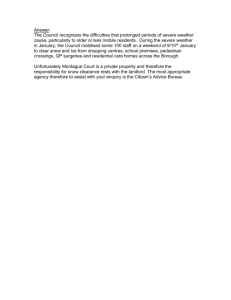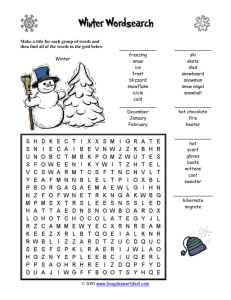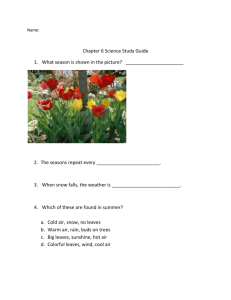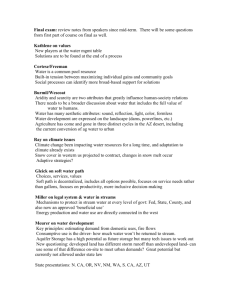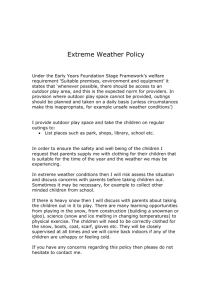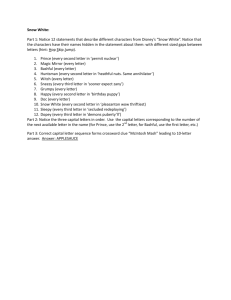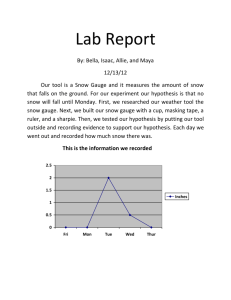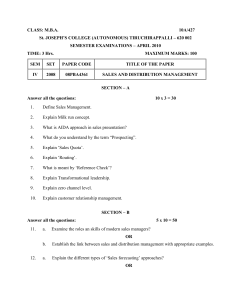Grammar
advertisement
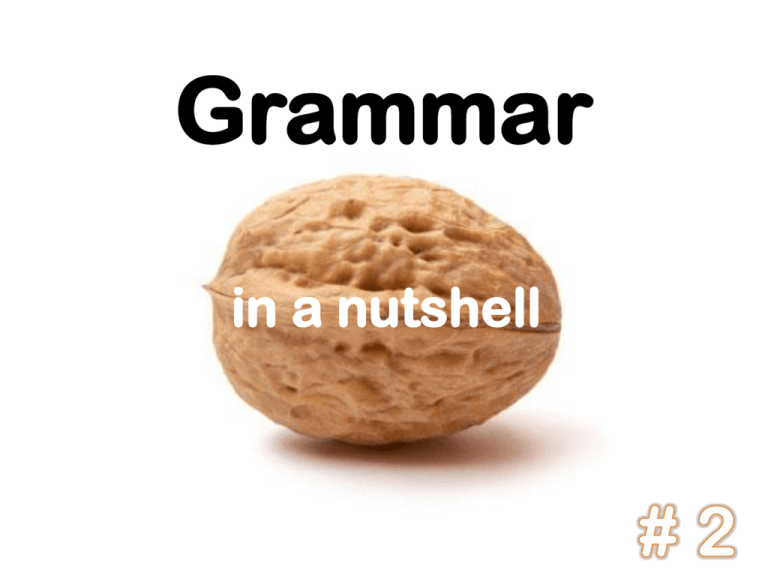
Grammar in a nutshell If or When?! If (indien) has to do with possibility. You can think: in case something happens… When (wanneer) has to do with time. Compare these two examples: 1. I'll phone you if I ever get back. 2. I'll phone you when I get back. In sentence 1 you’re not sure you are going to be back, but in case you do, you will call. In sentence 2 you’re sure that you will be back and promise to call then. Fill in: 1. 2. 3. 4. 5. 6. ………… it rains tomorrow,we won't have a picnic. I'm going to London. I'll phone ………… I get back. We'll catch the train ………… we leave immediately. Let's go ! My father will buy me a ………… I'm eighteen. I'm leaving work now. I'll finish this letter ………… I get home. ………… John doesn't come in his car, we'll take the subway. Prepositions http://www.myenglishpages.com/site_php_files/grammar-lesson-prepositions-place.php#.VF9-XDmzues 1 - I always keep some extra money __ my bag in case of emergencies. 2 - I'll read it tonight ___ home. 3 - She grew up ___ a farm. 4 - I read about it ___ the newspaper. 5 - The information is ___ the top of the page. Watch the clip and complete the sentences with NEXT TO, BEHIND, AT, ON or IN. abcdefghi- The birds are dancing ___________ the trees. Linda’s computer is ___________ the desk. The books are ___________ the desk. The telephone is ___________ Linda. The bookstore is ___________ Village Café. Linda is ___________ work. Blu is ___________ the desk. The female macaw is ___________ Brazil. The men put Blu ___________ a box. Now for the difficult bit… The Future Future There are a few ways you can talk about the future. You use will to say that something is (not) going to happen in the future. In Dutch you say ‘zal’ or ‘zullen’. It is a fact or you believe it to be true. For example: In speech: you shorten will to ‘ll, so: It will snow tomorrow. (Because Piet Paulusma said so and we believe that he is always right ;)) It’ll snow tomorrow. If something is not going to happen you say: will not or won’t… If you make a decision at the moment of speaking you use will. If you have made a decision in the past (so you have already planned it), then you use (to be) going to. If you expect something to happen or you have prove that something is going to happen or when something was planned before use GOING TO. I think, it’s going to rain. (expectation – the sky is looking very grey) Look, it’s going to snow. (proof – you can see the first snow drops) I’m going to the doctor in an hour. (plan – you have made the appointment already) Add not before going to if something is not going to happen. Will? Going to? Still confused about the future? Maybe this lady will be able to make it clear for you: http://youtu.be/YDj-7oyD6l0 Don’t forget: Always write YOU not U! Always write I never i! Always write going to: ‘gonna’ doesn’t exist... (neither does ‘wanna’ = want to) If you do these thing wrong, it will cost you points! Grammar in a nutshell
